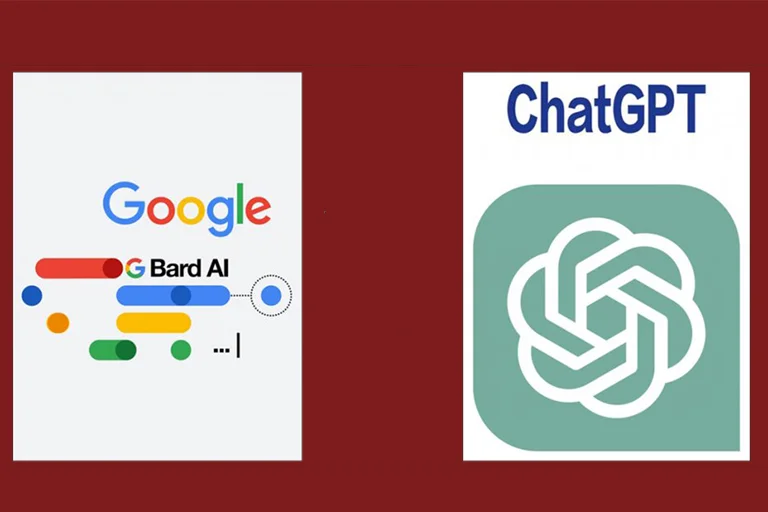Introduction
In the world of artificial intelligence and natural language processing, there are several advanced language models available that can assist with coding tasks. Two prominent examples are ChatGPT and Bard. These models have gained popularity for their ability to generate human-like text and provide valuable insights. In this article, we will compare ChatGPT and Bard, exploring their features, strengths, and weaknesses, to determine which one is better suited for coding purposes.
What is ChatGPT?
ChatGPT is an advanced language model developed by OpenAI. It is based on the GPT-3.5 architecture and has been trained on a vast amount of text data. ChatGPT is designed to generate human-like responses and engage in natural language conversations with users. It has gained popularity for its ability to understand and generate text across various domains and topics.
What is Bard?
Bard, on the other hand, is a specialized language model developed specifically for coding and programming tasks. It focuses on providing assistance and insights related to code generation, syntax, and best practices. Bard is trained on a large corpus of programming languages and can understand code snippets, identify errors, and suggest improvements.
Features of ChatGPT
- Natural Language Generation: One of the key strengths of ChatGPT is its natural language generation capability. It can understand and respond to user queries in a conversational manner. This feature makes it well-suited for tasks that involve interacting with users and providing detailed explanations or instructions.
- Code Completion and Assistance: While ChatGPT is not primarily designed for coding tasks, it can still assist with code completion and provide basic programming guidance. It can help in generating code snippets, suggest possible solutions, and offer insights into programming concepts. However, its suggestions may not always be as accurate or specific as those provided by Bard.
- Versatility: ChatGPT is known for its versatility across various domains. It can generate text on a wide range of topics, making it useful for tasks beyond coding. This flexibility allows developers to explore different areas and seek assistance on diverse subjects, all within the same language model.
Features of Bard
- Contextual Understanding: Bard has been specifically trained to understand programming languages and the context in which they are used. It excels in comprehending code structures, syntax, and semantics. This contextual understanding enables Bard to provide precise and relevant suggestions for improving code quality and efficiency.
- In-depth Code Analysis: Unlike ChatGPT, Bard focuses solely on code-related tasks. It can analyze code snippets, identify potential bugs or performance issues, and suggest optimizations. Bard’s expertise in code analysis makes it a valuable tool for programmers seeking detailed feedback on their code.
- Integration with IDEs: Bard offers seamless integration with Integrated Development Environments (IDEs) commonly used by developers. This integration enables real-time assistance and suggestions within the coding environment itself, enhancing the developer’s workflow and productivity. Bard’s ability to integrate with IDEs sets it apart as a dedicated coding companion.
Comparing ChatGPT and Bard
Now let’s compare ChatGPT and Bard across different aspects relevant to coding tasks.
- Coding Assistance: While both ChatGPT and Bard provide coding assistance, Bard’s focus on code-specific tasks gives it an edge in terms of accuracy and relevance. Bard’s in-depth code analysis and contextual understanding allow it to offer more specific and actionable suggestions for improving code quality.
- Language Comprehension: When it comes to comprehending natural language and engaging in conversations, ChatGPT outperforms Bard. It can handle a wide range of topics and generate text that closely resembles human speech. However, Bard’s expertise lies in understanding and analyzing code structures, making it superior for code-related tasks.
- Developer Experience: ChatGPT’s versatility and conversational nature make it an enjoyable tool for exploring various subjects beyond coding. It can provide detailed explanations, share insights, and engage in dynamic conversations. On the other hand, Bard’s specialized focus on coding provides a more streamlined experience for developers, with accurate and relevant suggestions directly related to their code.
Use Cases for ChatGPT
ChatGPT can be beneficial in several scenarios:
- Exploring programming concepts and related topics.
- Seeking explanations or examples for complex programming problems.
- Generating code snippets or pseudocode.
- Assisting with documentation or technical writing.
Use Cases for Bard
- Bard is particularly useful in the following situations
- Analyzing and improving existing codebases.
- Debugging and identifying errors in code.
- Learning and understanding programming languages.
- Getting real-time code suggestions and optimizations within IDEs.
Conclusion
In conclusion, both ChatGPT and Bard offer valuable assistance for coding tasks, but their strengths lie in different areas. ChatGPT’s natural language generation and versatility make it suitable for a wide range of tasks, including code-related queries. However, Bard’s specialized focus on code analysis and contextual understanding provides more accurate and relevant suggestions for coding tasks. Choosing between ChatGPT and Bard depends on the specific requirements and preferences of the developer.
FAQs
Q1. Can ChatGPT write code for me?
ChatGPT can assist with code completion and provide basic programming guidance, but it may not generate fully functional or optimized code. It is recommended to use ChatGPT as a tool for inspiration and guidance rather than relying solely on its code generation capabilities.
Q2. Can Bard be used for non-coding tasks?
Bard is primarily designed for coding tasks and excels in code analysis and assistance. While it may be able to provide some general text generation capabilities, its expertise lies in programming languages and related topics.
Q3. How accurate are Bard’s code suggestions?
Bard’s code suggestions are generally accurate and relevant due to its specialized training on programming languages. However, it’s always advisable to review and validate the suggestions before implementing them in your code.
Q4. Can I use ChatGPT and Bard together?
Yes, you can leverage the strengths of both ChatGPT and Bard by using them together in your coding workflow. ChatGPT can provide broader insights and explanations, while Bard can offer specific code optimizations and suggestions.
Q5. How can I integrate Bard with my favorite IDE?
Bard provides integration options with popular IDEs. You can refer to Bard’s documentation or the IDE’s plugin system to learn more about the specific steps required to set up the integration.




